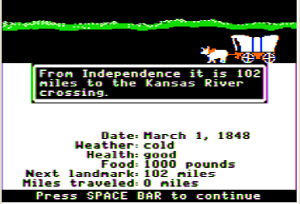Shameless Self-promotion Sunday
Here's a pretty old post from the blog archives of Geekery Today; it was written about 15 years ago, in 2010, on the World Wide Web.
It’s Sunday Sunday Sunday. Let’s get Shameless Shameless Shameless.

It’s my blog, so I guess I’ll have to go first. This weekend, the November 2010 issue of The Freeman was released; among the articles in this month’s issue are:
- Kevin Carson, The Distorting Effects of Transportation Subsidies
- Sheldon Richman, The Most Dangerous Derivative
- Wendy McElroy, An American Stasi?
- James L. Payne, Can Government Save Us from Manmade Disasters?[1]
And — the reason for mentioning it to-day, specifically — there’s also:
- Charles Johnson, There’s Too Little Trust in Government? It Just Ain’t So![2]

Secondly, preparations continue for my appearance to present Women and the Invisible Fist, and to represent the Molinari Institute at the the Radical Philosophy Association conference on Violence: Systemic, Symbolic, and Foundational in Eugene, Oregon. I’ve been working over the paper for its final form before the presentation[3]. If you’re interested in seeing a copy when it’s ready, just drop me a line and I’ll make sure you get one. In the meantime, I’d like to send out a big thank you to the folks who have generously contributed $40 to Molinari to help cover the costs of getting me to Oregon.[4] The point is–thanks, y’all are awesome. If you, too, would like to help me reach the Willamette Valley and support libertarian contributions to radical scholarship, check out the announcement post, or toss a few coins into the hat right here:
Anyway, so that’s me. How about you? What have you been up to this week? Write anything? Leave a link and a short description for your post in the comments. Or fire away about anything else you might want to talk about.
- [1]I’m not familiar with Payne’s previous work, but this article is a really nice reminder about government’s direct role in ecologically toxic mass insecticide spraying — often without the consent, or without even informing, property owners whose land was being poisoned from the air.↩
- [2]Previously mentioned in these pages when it appeared as an online feature: GT 2010-08-23: The only Good Government is No Government.↩
- [3]Mostly footnote work right now, but if you’ve read one of my papers before, you know that the way I write, damn, the footnotes are a lot of work; once I finish that, next up is a couple timed readings to make sure that I won’t run over.↩
- [4]That should cover at least the distance from Independence, Missouri to the Kansas River. If the hunting’s good, and we don’t lose anything crossing the river, and nobody dies of dysentery, it may even last us to Fort Kearny.↩
Still coming down off a post-Libertopia high. Also working on a couple of articles—one about the South Fulton fire fiasco (an attempt to turn my blog post on the topic into something more formal while the topic is still relatively hot) and another about the intelligibility of the idea of the common good for individualists.
I’d love a copy, Charles. Thank you.
I’m back to work on the Proudhon translations, with the rest of “The Theory of Property” first up. I’ll try to follow that up with the “Warning to Proprietors” and then “Literary Majorats.” There are some sections of “Theory of Property” that I’m looking at for the first time, and I’ve been pleased to find some of them give some support to my “gift economy of property”/”Walt Whitman theory of political economy” approach. And I’ve got a new blog post up, relating Proudhon’s mature property theory to Stirner’s union of egoists. It’s the first of three or four posts, clarifying the relation between Proudhon’s early and later approaches, preparatory to a summary article for “The Mutualist” and an article on intellectual property. I’ve got a ridiculous pile of almost-finished writing accumulated, but the response has been so tepid that it’s hard to maintain any sense of urgency. I’ve finally just decided I need to get the whole property project out of my hair, so I can concentrate on others things.
Corvus Editions naturally occupies most of my time. I think I’ve determined that the “cheap pamphlet editions of classics” model isn’t quite suited to the market. So I’m in the midst of shifting the focus to affordable hand-bound hardcover editions, with a “cheap edition in wraps” option. And I’m expanding into new areas: early science fiction, utopian novels, documents from the history of science, culture-rich literature, etc. It’s a matter of more fully embracing the tradition model of the radical bookseller/publisher. You could have worse role models than, say, Calvin Blanchard in that regard.